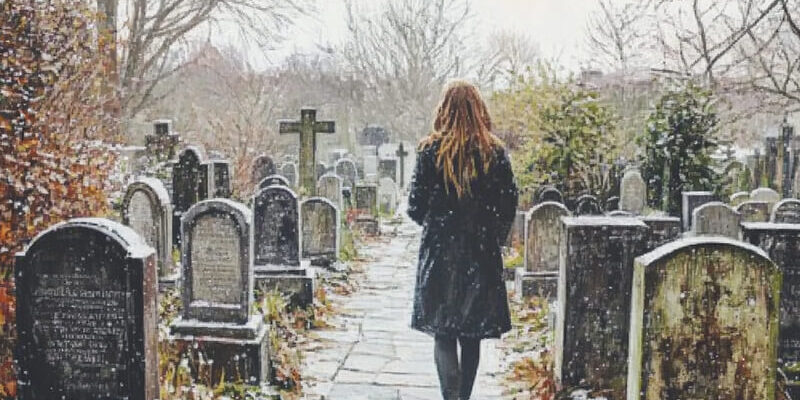Cemeteries close at dusk for practical and cultural reasons. Most cemeteries in the United States and Europe shut their gates when the sun sets. This practice dates back centuries and continues for good reasons.
Safety stands as the main concern for cemetery closures at night. Dark cemeteries create hazards for visitors who might trip over headstones or fall into open graves. Uneven ground and steps become harder to see after sunset. Maintenance crews need daylight to spot dangers and fix problems. The dark also makes it tough for security staff to watch over the grounds.
Respect for the dead drives another key part of this custom. Many cultures see nighttime visits to graves as disrespectful to those who rest there. The quiet hours of darkness let the deceased sleep in peace. This belief comes from ancient traditions that view dusk as a sacred transition time between day and night.
Crime prevention plays a big role in setting cemetery hours. Vandals target graveyards after dark to damage headstones or steal metal objects. Some people break in to hold parties or perform rituals. These acts hurt families who want to protect their loved ones’ final resting places. Closing at dusk helps stop these crimes.
The practical limits of cemetery staff affect opening hours. Workers need daylight to dig graves, cut grass, and fix broken stones. Most cemetery jobs can’t happen in the dark. Staff members also deserve set work hours like other employees. Closing at dusk lets them maintain regular schedules.
Cost factors into the decision to close at night. Lighting a whole cemetery would cost too much money. Most cemeteries run on tight budgets from plot sales and care funds. They can’t afford extensive lighting systems or night security teams. Natural daylight provides free illumination during open hours.
 Modern cemeteries must balance public access with property protection. Families want to visit graves when they can. But cemeteries need rules to stay safe and clean. Sunset closing times offer this middle ground. People can visit during daylight while the grounds stay secure at night.
Modern cemeteries must balance public access with property protection. Families want to visit graves when they can. But cemeteries need rules to stay safe and clean. Sunset closing times offer this middle ground. People can visit during daylight while the grounds stay secure at night.
Some special events create exceptions to dusk closing times. Memorial Day services might run into evening hours. Historical tours sometimes happen at night. But these events need special permits and extra security. Regular visits stick to daylight hours for everyone’s benefit.
Weather affects cemetery closing times throughout the year. Winter brings early sunset and shorter visiting hours. Summer allows longer visits with late sunsets. Most cemeteries post their seasonal hours at the entrance. This helps visitors plan their trips at the right times.
The dusk closing tradition makes sense for today’s cemeteries. It protects the grounds, respects the dead, and keeps visitors safe. These rules help cemeteries serve their communities while preserving dignity for those who rest within. The practice will likely continue as long as we maintain these sacred spaces.







